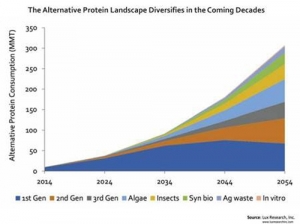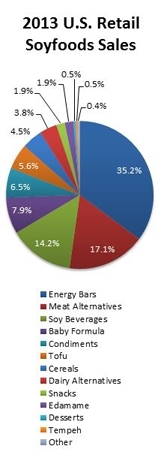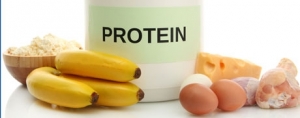Infographics
Consumer Attitudes Study Examines Soy Consumption
Consumer Attitudes Study Examines Soy Consumption
The United Soybean Board’s study reveals consumer perception of soyfoods as ‘very healthy’ is at an all time high.
07.26.16
According to the United Soybean Board’s 23rd annual Consumer Attitudes about Nutrition study, 83% of Americans believe it is important to support domestic agriculture by buying foods produced with crops grown by U.S. farmers, such as soybeans.
Similarly, 80% of respondents say they would be more or as likely to purchase vegetable oil labeled as “100% U.S.-grown soybean oil.” Soybean oil is commonly labeled as vegetable oil on grocery shelves. Consumers also say it is important that the foods they eat are produced using methods and practices that contribute to the long-term health of the environment.
“Sales of U.S.-grown soybean oil support the more than 550,000 U.S. soybean farmers,” said Jared Hagert, United Soybean Board Chairman. “In the production of U.S. soy, U.S. soybean farmers are committed to protecting the land and use sustainable practices that allow us to reduce pesticides, improve nutrient efficiency of the soil, conserve water and more.”
Consumers’ 'Very Healthy' Perception of Soyfoods is at an All-Time High
Eighty-one percent rate soyfoods as “healthy” and more consumers than ever before—47%—rate soyfoods as “very healthy.” The increase in positive health perception aligns with the increase in frequency of consumption and trial of soyfoods and beverages.
The number of consumers reporting consuming soy once a week or more increased by 16% since 2011. Over half of respondents seek out foods or beverages made with soy because of the nutritional benefits they associate with soy. Only 17% of consumers have never tried soyfoods—the lowest number reported in the history of the survey.
“The increase in positive health perception and frequency of consumption of soyfoods can be attributed to the public’s growing interest in eating sustainable foods and increasing protein intake,” said Amy Hendel, physician assistant and Soy Connection expert.
Soy Consumption Higher among Males than the General Population
Men eat more soy than women and the general population. Over half of men ages 18-54 report eating soy one or more times per week, compared to 43% of women and 41% of the general population.
“Men’s soy consumption can be attributed to their interest in increasing protein intake,” said Hendel. “In addition, men have more room in their diet to eat snacks, such as soy-based energy bars—the fastest-growing soyfoods category.”
For more information on the full results of the survey, visit SoyConnection.com/BITE-2016.

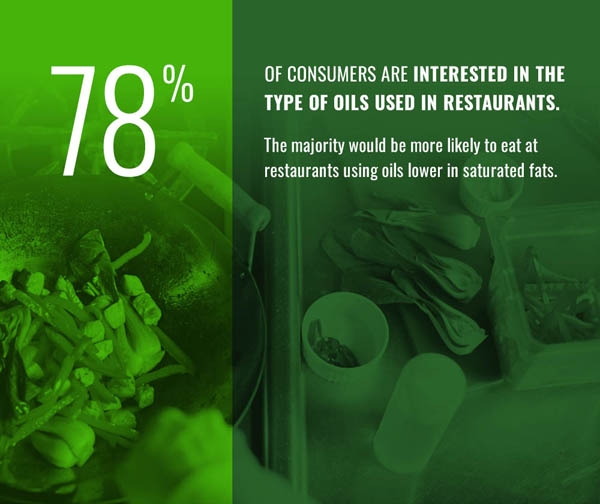
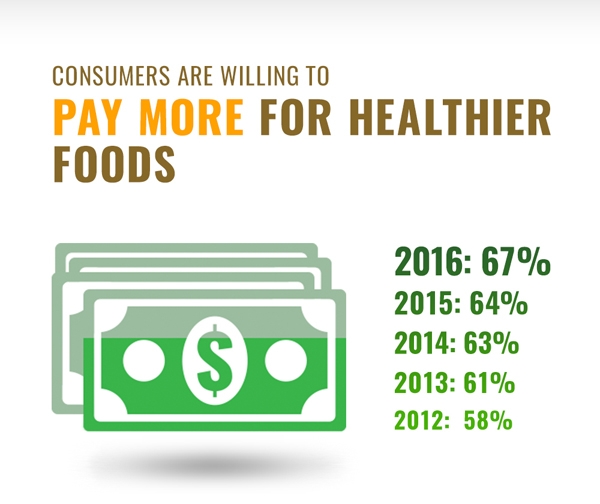
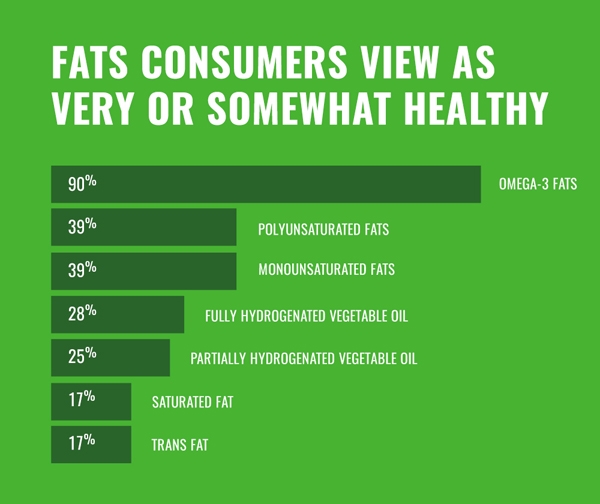
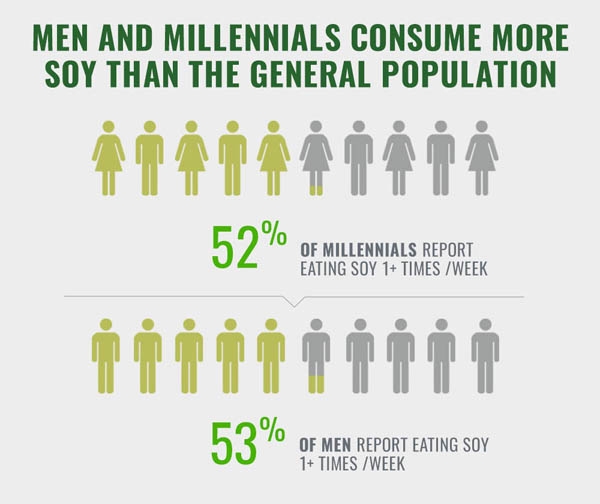
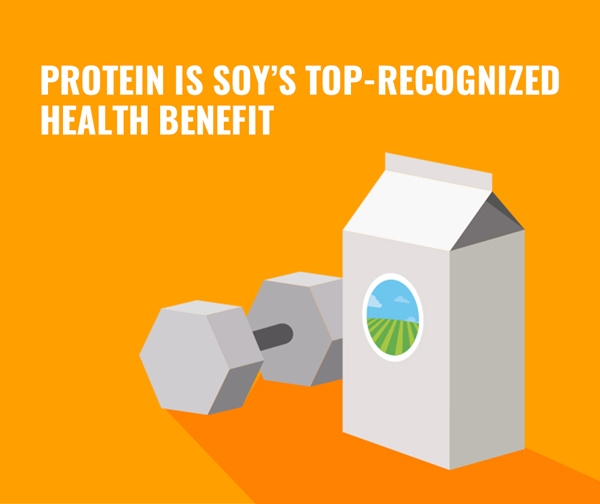
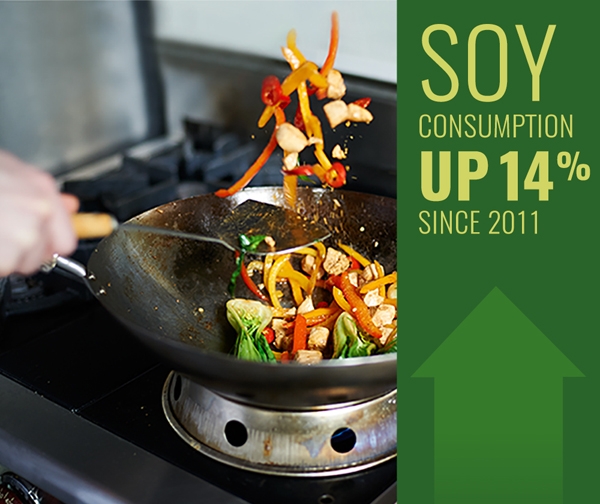
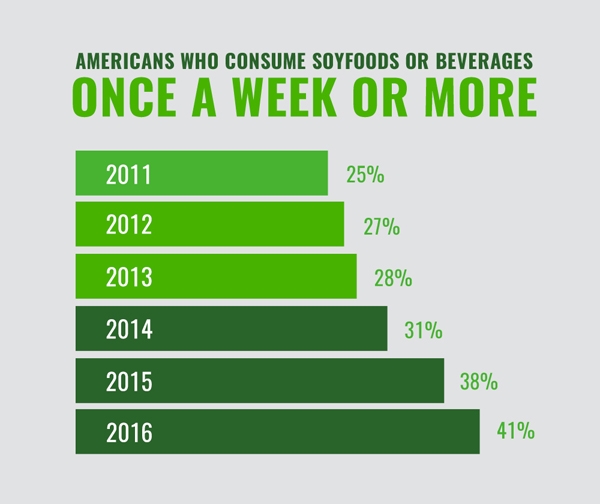
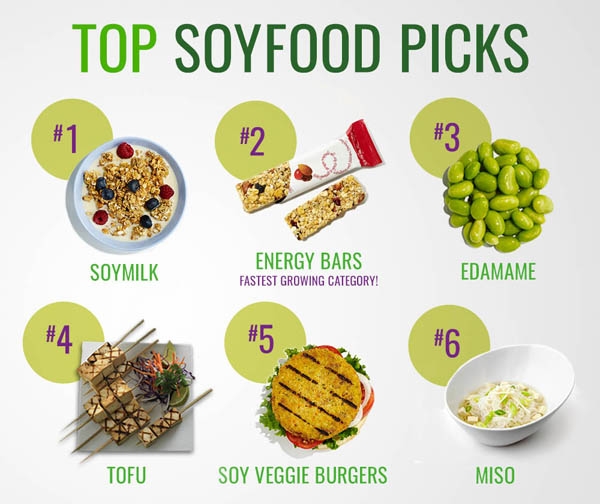
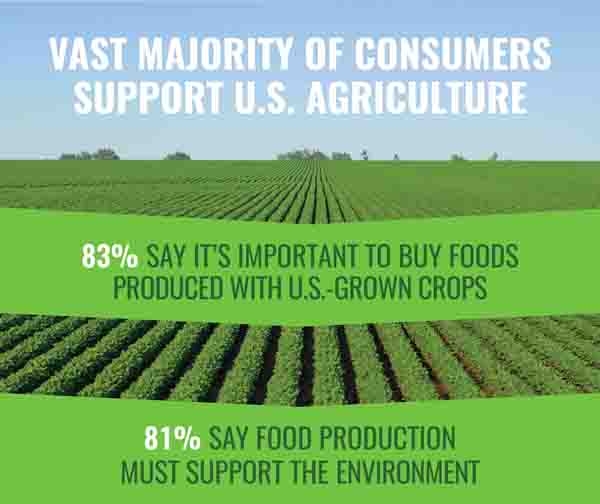
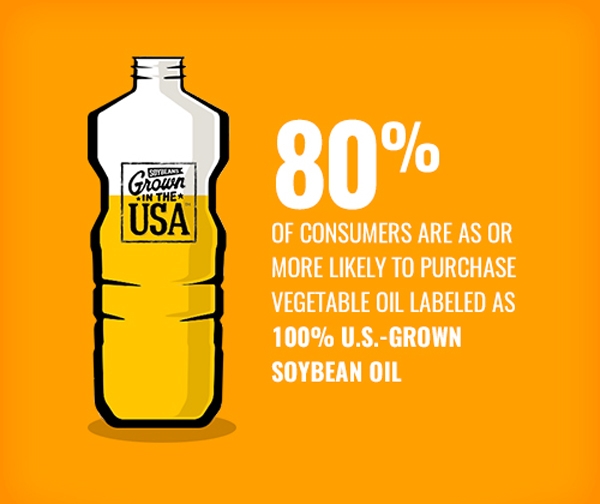
Similarly, 80% of respondents say they would be more or as likely to purchase vegetable oil labeled as “100% U.S.-grown soybean oil.” Soybean oil is commonly labeled as vegetable oil on grocery shelves. Consumers also say it is important that the foods they eat are produced using methods and practices that contribute to the long-term health of the environment.
“Sales of U.S.-grown soybean oil support the more than 550,000 U.S. soybean farmers,” said Jared Hagert, United Soybean Board Chairman. “In the production of U.S. soy, U.S. soybean farmers are committed to protecting the land and use sustainable practices that allow us to reduce pesticides, improve nutrient efficiency of the soil, conserve water and more.”
Consumers’ 'Very Healthy' Perception of Soyfoods is at an All-Time High
Eighty-one percent rate soyfoods as “healthy” and more consumers than ever before—47%—rate soyfoods as “very healthy.” The increase in positive health perception aligns with the increase in frequency of consumption and trial of soyfoods and beverages.
The number of consumers reporting consuming soy once a week or more increased by 16% since 2011. Over half of respondents seek out foods or beverages made with soy because of the nutritional benefits they associate with soy. Only 17% of consumers have never tried soyfoods—the lowest number reported in the history of the survey.
“The increase in positive health perception and frequency of consumption of soyfoods can be attributed to the public’s growing interest in eating sustainable foods and increasing protein intake,” said Amy Hendel, physician assistant and Soy Connection expert.
Soy Consumption Higher among Males than the General Population
Men eat more soy than women and the general population. Over half of men ages 18-54 report eating soy one or more times per week, compared to 43% of women and 41% of the general population.
“Men’s soy consumption can be attributed to their interest in increasing protein intake,” said Hendel. “In addition, men have more room in their diet to eat snacks, such as soy-based energy bars—the fastest-growing soyfoods category.”
For more information on the full results of the survey, visit SoyConnection.com/BITE-2016.











Related Searches:
Related Infographics
-

Getting Ahead of the Curve: COVID Refocuses Attention on Heart Health
By Dr. A. Elizabeth Sloan & Dr. Catherine Adams Hutt, Sloan Trends, Inc. 10.01.20
-

-
-
-




